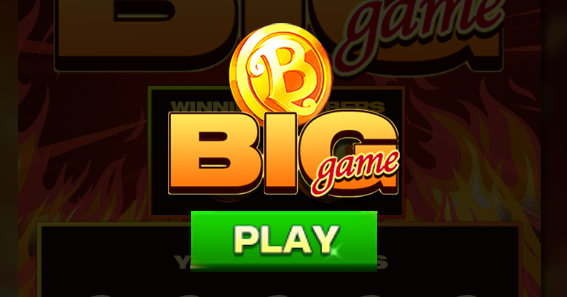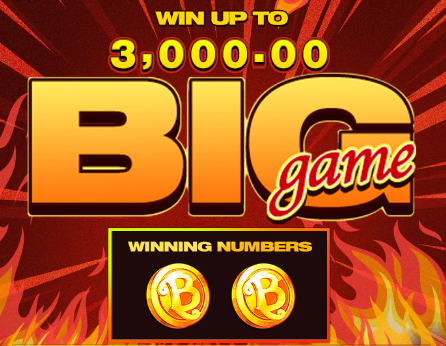Crazy Time Fake Money: The Game, Com, Con Controversy Unveiled
In the whirlwind of modern entertainment, the rise of virtual games has brought a new kind of excitement to players. Amidst this digital frenzy, one game in particular, Crazy Time, has caught the attention of millions. But what happens when the allure of winning big takes a dark turn? The integration of fake money into the game has sparked a contentious debate, one that delves into the realms of ethics, legality, and the very essence of fun. Let’s delve into this intricate world where reality blurs with fantasy.
The Unpredictable Surge of Crazy Time
In the vast digital landscape where innovation meets entertainment, a game has emerged that defies the norms—Crazy Time. This online phenomenon has seen an unpredictable surge in popularity, captivating players with its high-octane gameplay and the tantalizing promise of big wins. But what drives this surge? Let’s delve into the factors that have propelled Crazy Time into the stratosphere of online gaming.
The game’s premise is simple yet thrilling. Players place bets on various outcomes as the game’s host spins a giant wheel and triggers a series of exciting bonus games. It’s this blend of chance and excitement that has players coming back for more, with its unpredictable nature adding a layer of unpredictability that keeps the adrenaline pumping.
One of the key reasons for Crazy Time’s surge is its accessibility. The game is designed for quick sessions, making it perfect for players who want a quick fix of excitement without investing too much time. Its user-friendly interface ensures that even those new to online gaming can jump right in and start playing without a steep learning curve.
The allure of potential big wins is undeniable. With multipliers and bonus games that can skyrocket the pot, players are constantly dreaming of hitting the jackpot. This dream factor, combined with the game’s fast-paced nature, creates a perfect storm for player engagement.
Crazy Time’s surge can also be attributed to the social element it offers. Many players enjoy the community aspect of online gaming, and Crazy Time doesn’t disappoint. With the ability to play alongside friends or strangers, the game fosters a sense of camaraderie and competition that is hard to find in other genres.
The integration of live dealers adds another layer to the game’s appeal. The human element brings a level of authenticity that can’t be replicated by AI, and it’s this authenticity that has players feeling more connected to the experience.
Moreover, the game’s marketing has been nothing short of genius. With its high-energy promotional videos and social media campaigns, Crazy Time has become a household name in the online gaming community. The use of influencers and celebrities has also played a significant role in its rapid rise to fame.
The unpredictable nature of the game itself is a double-edged sword. While it’s part of what makes it so exciting, it also means that players can experience both winning and losing streaks without warning. This volatility keeps players on their toes and coming back for more, hoping that the next round might be their lucky break.
Another factor contributing to Crazy Time’s surge is its cross-platform compatibility. Players can enjoy the game on their desktops, smartphones, and tablets, allowing for seamless gameplay no matter where they are. This convenience has helped to expand its player base significantly.
The psychological aspect of the game cannot be overlooked. The anticipation of the wheel spinning and the bonus games triggering is a form of entertainment in itself. It’s this anticipation that keeps players on the edge of their seats, waiting for the outcome of each round.
Lastly, the game’s ability to adapt to changing trends is a testament to its resilience. As new technologies and platforms emerge, Crazy Time has managed to stay relevant, ensuring that it remains a staple in the online gaming world.
In conclusion, the unpredictable surge of Crazy Time is a result of its engaging gameplay, accessibility, social elements, live dealer experience, effective marketing, cross-platform compatibility, psychological appeal, and adaptability. As the game continues to evolve, it’s clear that its appeal will only grow stronger, making it a force to be reckoned with in the online gaming industry.

The Buzz Around Fake Money
In the world of gaming, where the line between reality and fantasy often blurs, the buzz around fake money has reached fever pitch. It’s a topic that ignites debates, sparks intrigue, and raises questions about the integrity of the gaming community. Here’s a closer look at the whirlwind of speculation and skepticism surrounding the use of counterfeit currency in various online games.
Gamers often find themselves entangled in a web of virtual wealth, where the stakes can be as high as they are in the real world. But when that wealth is not just a game, but a means to gain an unfair advantage, the conversation shifts to the use of fake money. These digital currencies, often referred to as “gold” or “coins,” are replicated with the intent to deceive, offering players a shortcut to power and prestige.
The allure of fake money is undeniable. It promises an instant boost to a player’s virtual profile, allowing them to purchase exclusive items, unlock hidden levels, or simply show off their newfound riches. The allure is so strong that it’s not uncommon to see discussions on gaming forums and social media platforms where players eagerly trade tips on how to obtain these counterfeit coins.
Yet, the use of fake money is not without its risks. Online communities are rife with warnings about the dangers of engaging with individuals who deal in counterfeit currency. There’s always the chance that a player might be scammed, losing their real money or their account credentials in the process. The fear of being banned from a game or having their progress erased is a constant shadow hanging over those who dabble in the dark arts of fake money.
As the buzz grows, so does the sophistication of the fake money operations. From simple copycat websites that mimic legitimate gaming platforms to advanced hacking techniques that allow players to generate their own virtual cash, the methods used to create and distribute counterfeit currency are as varied as they are devious. Some players even go to the extent of creating their own in-game economies, complete with their own currency and exchange rates.
The debate over fake money isn’t just about the morality of the act; it’s also about the impact on the game’s economy. When a significant number of players start using fake money, it can lead to inflation, devaluing the real currency and disrupting the balance of the game’s economy. This, in turn, can lead to a host of problems for developers, from unhappy players to potential legal issues if the game’s terms of service are violated.
Despite the risks and the negative impact, the allure of fake money persists. There’s a sense of excitement in the air, as players dream of the day they can bypass the hours of grinding and effort required to accumulate wealth in the game. It’s a testament to the power of instant gratification in a culture that values efficiency and speed.
The gaming community is divided on the issue. Some argue that the use of fake money is a personal choice and that as long as it doesn’t harm others, it should be left alone. Others believe that it undermines the spirit of fair play and ruins the experience for those who play by the rules. The debate often boils down to the question of whether the thrill of obtaining wealth quickly is worth the potential consequences.
In the shadow of these discussions, developers and game administrators are left to grapple with how to address the issue. Some have implemented strict anti-cheat measures, while others have chosen to ban players caught using fake money. Yet, despite these efforts, the buzz around fake money continues to grow, as players seek new ways to bypass the system and achieve their virtual dreams.
The use of fake money in online games is a complex issue that touches on the very essence of what it means to be a gamer. It’s a reflection of the human desire for power, control, and the thrill of the hunt, all wrapped up in a digital package. Whether or not the buzz around fake money will ever fade remains to be seen, but one thing is certain: it’s a topic that will continue to captivate the gaming world, stirring up controversy and debate for years to come.

A Curious Blend: The Rise of Fake Money in Crazy Time
In the world of online gaming, where virtual experiences often blur the lines between reality and fantasy, the rise of fake money within the popular game Crazy Time has sparked a whirlwind of intrigue and debate. This peculiar blend of virtual thrill and real-world deception has players questioning the integrity of the gaming environment and the allure of easy gains.
The allure of quick riches is a siren call that has always drawn people into the gaming world, and Crazy Time, with its high-speed gameplay and chance-based rewards, is no exception. But when players start to trade in fake money, the dynamics of the game begin to shift.
As the game gains momentum, whispers of fake money start to circulate among the community. It’s not just a few rogue players; it’s a trend that seems to be catching on. Some players claim to have seen others using what appears to be counterfeit currency to boost their chances of winning big. The fake money, often referred to as “glitch money” or “bot money,” is said to be a result of exploits in the game’s code or the actions of automated scripts designed to manipulate the system.
The conversation around this phenomenon quickly escalates. Forums and social media platforms are abuzz with discussions about the legitimacy of the game and the impact of fake money on the player base. Critics argue that the influx of counterfeit currency undermines the fairness of the game, while defenders suggest that it’s just the nature of online gaming—where some players will always try to find a way to gain an unfair advantage.
As the debate rages on, the evidence of fake money in Crazy Time becomes more tangible. Players report seeing others winning large sums of money without any apparent skill or strategy, leading to speculation that they are using the counterfeit currency. This has led to a sense of disillusionment among those who play fair, as they watch their hard-earned progress in the game being outpaced by players who seem to be cheating the system.
The developers of Crazy Time have remained tight-lipped about the issue, which only adds fuel to the fire. Some players have taken matters into their own hands, creating tools and scripts to detect and report players they suspect of using fake money. These vigilant individuals have become the de facto moderators of the game, attempting to maintain a level playing field for everyone involved.
The psychological impact of fake money in Crazy Time is profound. Players who are not using the counterfeit currency feel cheated and undervalued, as they see others gaining advantages through dishonest means. This can lead to a toxic environment where trust is eroded and the joy of playing the game is overshadowed by resentment and suspicion.
Moreover, the rise of fake money in Crazy Time raises questions about the broader implications of such practices in the gaming industry. If players can manipulate the system to gain an edge, what’s to stop them from doing the same in other games? This could have far-reaching consequences, not just for the individual games, but for the industry as a whole.
Despite the controversy, the allure of the game remains strong. New players continue to join the ranks, drawn by the promise of a quick win and the thrill of the unknown. However, as the issue of fake money persists, it’s becoming increasingly difficult for new players to discern between legitimate play and the shadowy world of deception.
In the end, the rise of fake money in Crazy Time is a curious blend of gaming’s dark side and the human desire for instant gratification. It challenges the very essence of what makes a game fair and enjoyable, and it serves as a stark reminder that in the digital realm, the line between reality and illusion is often blurred.

Real Money or Fake Fun? The Controversy Unveiled
In the world of online entertainment, the blend of real money and the allure of fake fun has created quite the stir, especially with the advent of games like Crazy Time. The controversy surrounding the use of fake money within these platforms has sparked debates among players, developers, and critics alike. Let’s delve into the nuances of this issue.
The allure of fake money is undeniable. It offers players a taste of the high-stakes thrill without the financial risk. In Crazy Time, for instance, players can bet with virtual currency, which, while not tangible, certainly ignites the competitive spirit. The concept of fake money has turned the game into a playground for risk-taking, where the stakes are lower and the fun is heightened.
However, as with any form of entertainment that involves gambling, the line between fun and addiction is thin. The allure of winning big with just a click of a button can be intoxicating, and some players may find themselves spending more time and effort trying to accumulate this virtual currency than they would on a traditional game of chance. This is where the controversy begins to simmer.
Critics argue that the use of fake money in games like Crazy Time can lead to unrealistic expectations and a distorted sense of reality. They point out that while players may not be risking real cash, the psychological impact of losing can be just as damaging. The thrill of winning can become an obsession, blurring the lines between virtual wins and the possibility of real-world gains.
On the flip side, defenders of the use of fake money in online games argue that it’s a form of escapism. It allows players to experience the rush of winning without the consequences. They suggest that the virtual currency system is a safe way for individuals to explore their gambling tendencies without crossing into dangerous territory.
The debate also touches on the economic aspect. For many online gaming platforms, the use of fake money is a lucrative business model. It encourages players to spend more time on the site, potentially leading to in-app purchases for better chances of winning or more engaging content. This revenue stream can be substantial, but it raises questions about the long-term effects on player behavior and mental health.
Another point of contention is the lack of transparency in some online gaming platforms. Players may not be fully aware of the odds or the randomness of the games when they’re using fake money. This can lead to a sense of being deceived, as players might feel they’re not making informed decisions. It’s a delicate balance between providing a thrilling experience and ensuring that players understand the game mechanics.
Furthermore, the rise of fake money in online games has sparked concerns about the potential for fraud and cheating. With virtual currencies and in-game items often being traded outside of the platform, there’s a risk that these can be manipulated or become targets for scammers. This adds another layer to the controversy, as it not only affects the integrity of the game but also poses a threat to the financial security of players.
In the heart of this controversy, the developers of Crazy Time and similar games find themselves in a tricky position. They must balance the desire to create an engaging and entertaining experience with the need to protect their players from the potential harms of excessive gaming and financial exploitation.
Ultimately, the controversy surrounding real money versus fake fun in games like Crazy Time is a reflection of a larger debate about the role of gambling in society. It highlights the challenges of navigating the fine line between entertainment and potential addiction, while also questioning the ethics of monetizing player engagement through a system that can be so easily manipulated.
As the world continues to evolve with new technologies and gaming platforms, the debate is unlikely to disappear. It will be up to the industry, players, and regulators to find a middle ground that respects the joy of the game while addressing the potential risks. Until then, the question of whether the thrill is worth the risk will remain a topic of heated discussion among enthusiasts and critics alike.

How to Spot the Counterfeits: A Beginner’s Guide
Navigating the world of digital currencies can be daunting, especially when it comes to identifying fake money. Whether you’re a seasoned trader or a curious beginner, the ability to spot counterfeits is crucial. Here’s a guide to help you out, with tips and tricks that can make you a more informed participant in the crypto space.
Keep an Eye on the SourceOne of the simplest ways to avoid falling victim to fake money is to be vigilant about where you’re getting your digital assets. Trustworthy exchanges and reputable platforms are less likely to deal in counterfeit currencies. Always research the source of your coins, and be wary of deals that seem too good to be true.
Observe the Transaction SpeedLegitimate transactions often happen swiftly, especially in the fast-paced world of cryptocurrencies. If you notice an unusually slow transaction time, it could be a red flag. Scammers might use this delay as a tactic to avoid detection or to give you time to realize the transaction is fraudulent.
Check the BlockchainEvery cryptocurrency transaction is recorded on a blockchain, a transparent and immutable ledger. By examining the blockchain, you can verify the authenticity of a transaction. Look for details like the transaction ID, the sender’s address, and the recipient’s address. If something seems off, like a mismatched address or a transaction that doesn’t align with the blockchain’s records, it’s wise to investigate further.
Inspect the Wallet AddressWhen receiving cryptocurrency, always double-check the wallet address. Counterfeiters might create addresses that look almost identical to legitimate ones. Pay close attention to the case of letters, the presence of numbers, and any special characters. A slight variation can be the difference between a real transaction and a fake one.
Understand the Coin’s DesignEach cryptocurrency has its own unique design elements. Whether it’s the logo, the color scheme, or the overall aesthetic, familiarize yourself with these details. Fake coins often have inconsistencies in their design, such as pixelated images or slightly off colors. If something doesn’t look right, it’s worth questioning the coin’s legitimacy.
Be Wary of Odd Market ActivityMarket manipulation is a common tactic used by scammers. If you notice sudden spikes or drops in a coin’s price, or if the trading volume seems unusually high, it could be a sign of fraudulent activity. Real market movements are typically more gradual and less erratic.
Use Cryptocurrency AnalyzersThere are various online tools and software that can help you analyze cryptocurrency transactions. These tools can provide insights into a coin’s legitimacy, including details about its blockchain activity, trading history, and community sentiment. Leveraging these resources can give you a better understanding of whether a coin is genuine or not.
Stay Informed About Security MeasuresThe crypto community is constantly evolving, with new security measures being introduced to combat fraud. Stay up-to-date with the latest developments in blockchain technology and cryptocurrency security. Knowledge is power, and being aware of the latest scams and countermeasures can help you avoid falling prey to fake money.
Be Skeptical of Unverified OffersIf someone approaches you with an offer that seems too good to be true, it probably is. Whether it’s a promise of high returns or an easy way to get rich quick, be skeptical. Scammers often use these tactics to lure unsuspecting individuals into parting with their real money.
Consult the CommunityThe crypto community is a vast network of enthusiasts, experts, and traders. Don’t hesitate to reach out to the community for advice or to verify the legitimacy of a coin. Forums, social media groups, and online chat rooms are great places to seek opinions and insights from others who may have encountered similar situations.
Remember, there’s no foolproof way to guarantee the authenticity of a cryptocurrency. However, by combining these tips and staying informed, you can significantly reduce your risk of encountering fake money. Trust your instincts, do your research, and always approach the crypto market with a healthy dose of caution.

The Impact on the Crazy Time Community
In the midst of the excitement and unpredictability of Crazy Time, a phenomenon has been quietly bubbling beneath the surface: the integration of fake money. It’s a curious blend, one that’s sparked both intrigue and controversy among players and enthusiasts alike. The question looms large: is it real money at play, or just fake fun?
As the game gains popularity, so does the allure of using fake money, often in the form of virtual currency or game tokens. These digital coins can be traded, won, or purchased, blurring the lines between fantasy and reality. It’s not uncommon to see players boasting about their massive virtual wealth, all while engaging in the thrill of the game. Yet, as the thrill of accumulation grows, so does the risk of falling into a world of deception.
One impact is the rise of a subculture within the Crazy Time community. These players, often referred to as “fake money aficionados,” dedicate significant time and effort to accumulating vast virtual fortunes. They engage in strategies, collaborate with others, and sometimes even resort to less-than-honest methods to boost their wealth. This creates a sense of camaraderie among those who share this obsession, fostering a niche community within the broader gaming sphere.
However, this subculture also breeds a sense of division. Many players who prefer to play with real money or those who have a moral objection to the use of fake money feel alienated. They argue that the integrity of the game is compromised when players are more focused on the accumulation of fake wealth rather than the genuine thrill of winning. This divide can lead to heated debates and discussions, often causing tensions within the community.
The impact on the Crazy Time community extends beyond the social dynamics. The influx of fake money has also raised concerns about the game’s economy. As more players invest in virtual currency, the demand for it increases, potentially inflating its value. This, in turn, could lead to a bubble, where the real value of the currency is eroded or becomes disconnected from the actual gameplay. It’s a delicate balance that the game’s developers must carefully manage to maintain a healthy and sustainable economy.
Furthermore, the use of fake money has raised questions about the legitimacy of the game itself. With players able to manipulate their virtual wealth, there’s a risk that the fairness of the game is compromised. This concerns both new and experienced players, as it undermines the trust that is crucial for any successful gaming community. It’s a challenge for developers to ensure that the game remains fair and accessible to all, regardless of their financial means.
On a personal level, the influence of fake money is evident in the behavior of players. There’s a noticeable trend of players spending excessive amounts of time and effort to acquire virtual riches. This obsession can lead to real-life issues, such as financial strain or a lack of balance between gaming and other responsibilities. The allure of fake money can be intoxicating, blinding players to the potential consequences of their actions.
In response to these challenges, the Crazy Time community has begun to organize itself. Some players have formed groups to discuss and debate the use of fake money, aiming to raise awareness about the issues at hand. They advocate for transparency and fairness, pushing for changes that would protect the integrity of the game. Others have taken matters into their own hands, creating their own alternative platforms or communities where real money is the only currency accepted.
Despite the controversy, the allure of fake money in Crazy Time persists. It’s a testament to the game’s ability to captivate and engage players, even as it poses challenges to its community. The game’s developers face a difficult task of balancing the excitement of virtual wealth with the need to maintain a fair and enjoyable experience for all players. As the game evolves, so too will the strategies and opinions of its community, navigating the complex landscape of real money and fake fun.

The Legal and Ethical Dilemmas
In the world of online gaming, the introduction of fake money has injected a complex mix of excitement and controversy into the landscape of Crazy Time. This rise has not only sparked discussions about the authenticity of the game but has also raised significant legal and ethical questions.
The allure of fake money often lies in its promise of easy wins and instant riches. Players, driven by the thrill of potentially hitting it big without much effort, are drawn to these alternatives. However, the allure is often short-lived as the reality of the game’s mechanics and the potential consequences of using fake currency come into play.
One of the primary legal dilemmas revolves around the legitimacy of the fake money itself. Many online platforms that facilitate the use of fake money do so through unregulated channels, which can lead to a host of legal issues. For instance, these platforms might not adhere to anti-money laundering (AML) regulations, potentially allowing for the use of funds from illegal activities.
Moreover, the distribution of fake money can blur the lines between what is considered a game and what might be seen as a financial transaction. If players are exchanging real money for fake currency, it could be argued that they are engaging in an activity that mimics gambling, which is often heavily regulated or even illegal in many jurisdictions.
Ethically, the use of fake money in Crazy Time raises questions about fairness and the integrity of the game. When players use counterfeit money, they are essentially competing against others who are not on the same playing field. This can lead to feelings of frustration and disillusionment among those who invest time and resources into the game without resorting to dishonest means.
The ethical debate also extends to the developers and operators of the game. By allowing or enabling the use of fake money, they may be perceived as compromising the integrity of the game, which can tarnish the brand and alienate loyal players who value honesty and fairness.
In some cases, the use of fake money has been linked to fraudulent activities, such as the creation of bot accounts or the manipulation of game statistics. These actions not only undermine the community’s trust but can also disrupt the gameplay experience for legitimate players.
From a legal standpoint, the issue of fake money in Crazy Time is further complicated by the fact that it can be difficult to trace and regulate. Many players use digital wallets or other anonymous payment methods, making it challenging for authorities to intervene or impose sanctions.
The ethical implications are also vast. The presence of fake money can create a culture of deceit within the community, where the end goal is not necessarily to enjoy the game but to gain an unfair advantage. This can lead to a toxic environment where the spirit of friendly competition is replaced by cutthroat tactics and the disregard for the rules.
In the end, the legal and ethical dilemmas posed by the use of fake money in Crazy Time highlight the broader issues of regulation and community oversight in the online gaming industry. As the popularity of games like Crazy Time continues to grow, so too does the need for clearer guidelines and enforcement to ensure that the experience is fair and enjoyable for all players. The industry must grapple with the challenges of balancing player freedom with the need to maintain a level playing field and uphold the integrity of the games they offer.

Conclusion: Navigating the World of Fake in Crazy Time
Navigating the world of fake in Crazy Time is a treacherous terrain, where the thrill of the unknown meets the shadow of deception. It’s a world where the line between excitement and risk blurs, and where the quest for fun can lead down paths few are prepared to follow. In this conclusion, we delve into the complexities and consequences of engaging with counterfeit elements within the Crazy Time community.
The allure of fake money in Crazy Time often comes down to the allure of the unattainable. It’s a temptation that promises an adrenaline rush, the chance to bypass the rules, and the dream of striking it rich without the effort or patience of legitimate play. The allure, however, is fleeting and comes with a heavy price. The excitement of potentially winning big with counterfeit cash can overshadow the ethical concerns and the very real possibility of being scammed.
Scams are a dark underbelly of the Crazy Time community. From fake websites that mimic legitimate platforms to individuals who offer to “lend” money for a share of the profits, the schemes are as varied as they are cunning. The allure of fake money is often fueled by desperation, be it financial or otherwise. Players caught in the trap of fake money are not only at risk of losing their own money but also of becoming pawns in larger scams that exploit the community’s trust and naivety.
The psychological impact of dealing with fake money is profound. There’s a sense of betrayal when players discover they’ve been deceived. The thrill of the game is replaced by a gnawing doubt, a constant reminder of the dishonesty at play. This can lead to a breakdown in trust within the community, as individuals become wary of others and the integrity of the games they enjoy.
On a broader scale, the presence of fake money in Crazy Time undermines the credibility of the platform itself. It creates a perception that the game is not fair or secure, which can drive away legitimate players and tarnish the reputation of the game. The community, which thrives on a sense of shared enjoyment and trust, becomes fragmented as skepticism spreads.
The legal implications of using fake money in Crazy Time are serious. Engaging in financial fraud, whether it’s using counterfeit cash or facilitating transactions with it, can lead to criminal charges. This is not just a personal risk but also an impact on the community as a whole. Legal issues can arise from both the perspective of the individuals involved and the platform that hosts the game, as they may be seen as aiding and abetting such activities.
Ethically, the use of fake money raises questions about the values and principles that underpin the Crazy Time community. It challenges the notion of fair play and the importance of integrity. When players choose to use counterfeit money, they are not only violating the rules but also contributing to a culture that prioritizes instant gratification over long-term satisfaction and trust.
The consequences of using fake money in Crazy Time are multifaceted. They range from personal financial loss and the emotional toll of betrayal to broader implications for the community and the game itself. The allure of fake fun may seem irresistible, but it is a slippery slope that can lead to dire consequences.
In the end, navigating the world of fake in Crazy Time requires a conscious effort to resist the temptation of shortcuts. It means staying vigilant and informed, recognizing the signs of deception, and making choices that align with personal values and the community’s best interests. The path may be fraught with challenges, but it is the only way to preserve the integrity of the game and the trust of its players. As the Crazy Time community grows and evolves, it must continue to address these issues head-on, fostering an environment where fun and fairness go hand in hand.